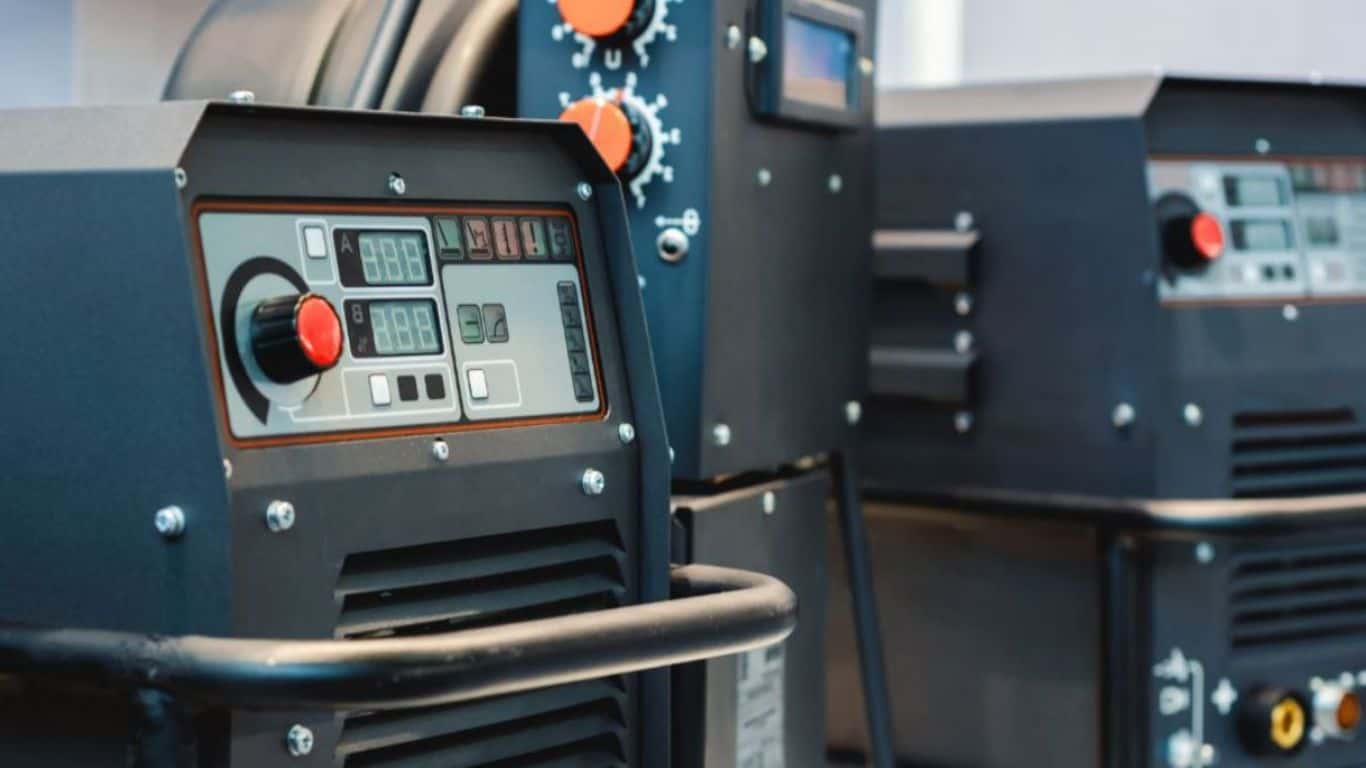When the welding machine reaches the end of its useful life or the business expands its activities, it is time to get new operators and new welding machines. There is a wide variety of welding machines on the market and in many cases it is difficult to compare different makes and models. What to look for when buying a welding machine?
A good welding machine should have a long service life. It is wise to spend some time comparing machine specifications with your needs and demands. In the best case scenario, your company’s productivity and your welders’ job satisfaction will reach high levels with the right equipment.
Here are some important points to consider when making a purchasing decision.
Determining the welding process
The first things to do are very simple. Consider the applications for which the welding machine will be used and why a new machine is being purchased. Determine the welding method (MMA, TIG, MIG/MAG). Buying new welding equipment means deciding whether existing welding processes can be modified or further enhanced with special processes.
Base materials play an important role when considering the characteristics of the welding machine. In MIG/MAG welding it is good to take plate thickness and weld length into account. The thicker the plates and the longer the welds, the higher the required power and duty cycle of the power source. In MIG welding, if the main base material is aluminum, a pulse-d.pulse welding machine is the only right choice. TIG welding, on the other hand, always requires an AC/DC welding machine. These criteria also influence the price of the new machine and the models available.
Is it also worth considering whether a machine specialized in a specific welding process will best suit your needs or whether a multi-process welding machine can do the same? This depends in particular on the role of the welding process and its criticality in operations.
What is the role of welding?
The role of welding in the business and different applications define the characteristics of the new welding machine. When welding is the secondary helper, even an affordable welding machine can meet the needs. However, cheap is rarely a synonym for good – the better the welding machine, the better the arc characteristics. A high-quality, spatter-free arc ensures that there is no need to waste time post-processing. Of course, the functionality and reliability of the welding machine are always important features. In this case, time and money will not be spent on additional maintenance and ordering spare parts.
Is welding done only on the factory floor or, for example, in a small, enclosed area? When welding needs are exceptional, the size, mobility and location of the machine play an important role. Different accessories (boom slings, long interconnecting cables, etc.) facilitate the welder’s daily work. In some applications the availability of certain accessories is critical enough to influence the purchase decision. Even before making a purchase decision, it is a good idea to review the available accessories with your sales representative and purchase the necessary accessories at the same time as the welder itself.

Welding machine in individual or shared use?
A welding machine is a production tool for the company, but also a partner for the welder. The end user’s opinion is often the decisive factor in the purchase decision and tips the scales in a certain direction.
When the welding machine serves only one user, the brand loyalty of a satisfied user comes into play. When there are several users, ease of use, language options and a user interface that is quick to adopt are of high value. Especially in an industrial environment, welding machines are purchased based on demos and tests. Make sure your sales representative guides you through the features of the machine and that the demo time is sufficient for your business needs. Check references. Companies in the same industry may have experience with the welding machine you are interested in.
Are maintenance and spare parts easily available?
No matter how high quality your welding machine is, there will be a time when it requires maintenance or spare parts. Even before you buy the machine, find out where the nearest service point is located and what the response times are. Likewise, make sure consumables and spare parts are available. When consumables are of high quality, their lifespan is extended, resulting in significant cost savings in the long run. Original consumables from the manufacturer are the most cost-effective and safest choice.
Business happens between people. A dedicated sales representative looking for solutions to your basic sourcing problems inspires more confidence than an online store you can’t get in touch with. A professional distributor or manufacturer will answer your questions without delay, even after the deal is done. When promises are kept and the product meets expectations, it is natural to turn to the same vendor with your future sourcing needs.
Depending on the market and need, it may be a good idea to make sure that your new welding machine is properly documented and meets standards and industry requirements. Again, a well-known manufacturer that has been around for a long time is a good and safe choice. Remember to check the product’s warranty policy before making a purchase decision.
Does price matter?
The value of a welding machine is not only measured in money. Ultimately, the price of the product means reliability, quality, life cycle and service life, as well as available spare parts and serviceability. Cost is not only essential for buying a welding machine, but also for buying a reliable production tool. There is usually a price you cannot or do not want to exceed, but it is worth remembering that cheap rarely means good quality

